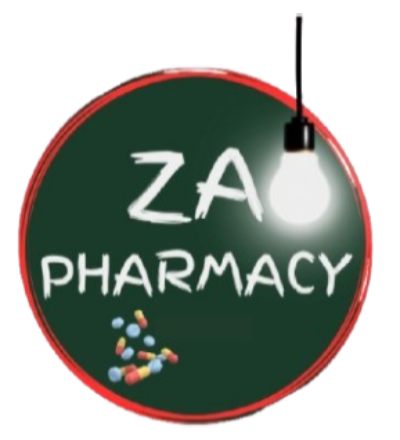Za Pharmacy
Drugs, Supplies and Delivery
Nitroglycerin
Nitroglycerin, also known as glyceryl trinitrate (GTN), is a potent vasodilator primarily used for the treatment and prevention of angina pectoris. It is one of the oldest and most effective medications for managing ischemic heart disease. This article synthesizes information from the British National Formulary (BNF), Lippincott Textbook of Pharmacology, and Lange Basic & Clinical Pharmacology to provide a detailed overview of nitroglycerin, including its mechanism, uses, dosing, side effects, precautions, and drug interactions.
Nitroglycerin is a nitrate that works by releasing nitric oxide (NO) in vascular smooth muscle. Nitric oxide activates guanylyl cyclase, leading to increased levels of cyclic guanosine monophosphate (cGMP). This results in:
- Vasodilation of veins and arteries, reducing preload and afterload on the heart.
- Improved coronary blood flow, relieving myocardial ischemia and angina symptoms (Lippincott, Lange).
Nitroglycerin’s effects are most pronounced on venous capacitance vessels, which decreases venous return (preload) and myocardial oxygen demand (BNF).
- Acute Angina Relief:
- Used to treat acute angina attacks by rapidly relieving chest pain (BNF).
- Prophylaxis of Angina:
- Prevents angina episodes before physical activities or stressful events (Lippincott).
- Heart Failure:
- Used in acute decompensated heart failure to reduce preload and pulmonary congestion (Lange).
- Hypertensive Emergencies:
- Intravenous nitroglycerin is used to manage severe hypertension, particularly in perioperative settings (BNF).
- Sublingual Tablets/Spray (Acute Angina):
- 0.3–0.6 mg every 5 minutes as needed (max 3 doses in 15 minutes) (BNF).
- Transdermal Patches (Prophylaxis):
- Apply 5–10 mg patch daily, with a nitrate-free interval of 10–12 hours to prevent tolerance (Lippincott).
- Intravenous (Acute Heart Failure/Hypertensive Emergencies):
- Initial dose: 5–10 mcg/min, titrated to effect (max 200 mcg/min) (Lange).
Administration:
- Sublingual tablets should be placed under the tongue and allowed to dissolve.
- Transdermal patches should be applied to clean, dry, hairless skin and rotated to different sites to avoid skin irritation (BNF).
- Common: Headache (due to vasodilation), dizziness, flushing, and hypotension (Lippincott).
- Serious: Reflex tachycardia, methemoglobinemia (rare), and severe hypotension (Lange).
- Hypotension: Use with caution in patients with low blood pressure or volume depletion (BNF).
- Severe Aortic Stenosis: Avoid in patients with severe aortic stenosis due to risk of cardiovascular collapse (Lippincott).
- Pregnancy: Use only if benefits outweigh risks; limited data available (Lange).
- Tolerance: Prolonged use can lead to tolerance; ensure a nitrate-free interval of 10–12 hours (BNF).
- Phosphodiesterase-5 Inhibitors (e.g., sildenafil): Concomitant use can cause severe hypotension; contraindicated (Lippincott).
- Antihypertensives: Enhanced hypotensive effects when combined with other vasodilators or antihypertensive medications (Lange).
- Alcohol: May exacerbate hypotension and dizziness (BNF).
Nitroglycerin is the generic name for this medication. It is marketed under various brand names, including Nitrostat® (sublingual tablets), Nitrolingual® (spray), and Nitro-Dur® (transdermal patches). Generic versions are widely available and cost-effective.

